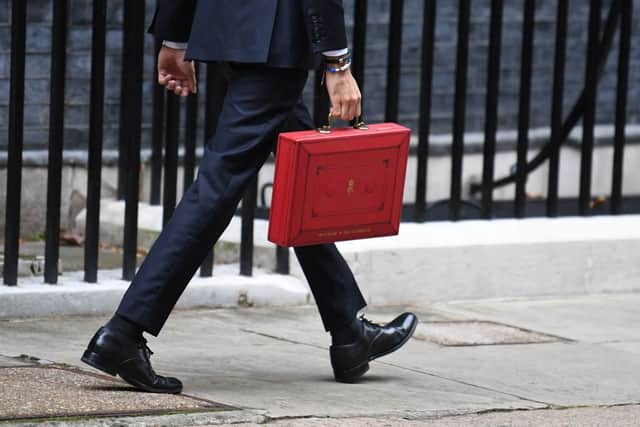National insurance reversal: why has Chancellor Kwasi Kwarteng scrapped contributions rise? Tax cut explained
and live on Freeview channel 276
Kwasi Kwarteng will make his first major speech since becoming Chancellor of the Exchequer on Friday (22 September) in an event that has been dubbed a ‘mini budget’.
Liz Truss’s government has already announced major spending plans, including an energy bills intervention for households and similar support for businesses. Mr Kwarteng will reveal how these policies will be paid for.
Advertisement
Hide AdAdvertisement
Hide AdThe Chancellor is also expected to unveil a suite of tax cuts that both he and Liz Truss hope will reduce the impact of the UK cost of living crisis and reduce the effects of the recession the Bank of England says the country is now in. If the UK economy moves back into growth, the pair hope the prosperity generated will ‘trickle down’ to workers.


One of these tax cuts will be a reversal of the national insurance increase Rishi Sunak implemented in April when he was still Boris Johnson’s Chancellor.
But what is national insurance - and what will this tax cut mean for UK households? Here’s what you need to know.
What is national insurance?
National insurance is a levy all working people above the age of 16 pay through their salaries. Employers also make contributions to the tax.
Advertisement
Hide AdAdvertisement
Hide AdThe tax is used to pay for the welfare state and allow people to qualify for state benefits. You can access the following UK state support by making national insurance contributions (NICs):
- basic state pension
- additional state pension
- new state pension
- contribution based jobseeker’s allowance
- contribution based employment and support allowance
- maternity allowance
- bereavement support payment


What will national insurance cut mean?
Kwasi Kwarteng was already expected to announce the reversal of the national insurance hike in his mini budget. So the announcement that it will be scrapped from 6 November comes as no major surprise.
In practice, it means national insurance contributions will fall by 1.25% for most workers from 13.25% to 12% of their salaries. This 1.25% hike was due to become a separate tax called the ‘health and social care levy’ from April 2023.
The money was due to be paid into a ring-fenced fund so it could only be used towards public NHS and social care costs. Mr Kwarteng said that while the hike and this additional levy would be cancelled, funding would still go into this pot.
Advertisement
Hide AdAdvertisement
Hide AdIt means the government is likely to have to borrow around £13 billion a year to make up for the loss in tax receipts.
The NICs increase was first announced by Boris Johnson in September 2021 and came into force in April 2022. In July, Mr Johnson’s Chancellor Rishi Sunak upped the threshold of the tax - i.e. the amount you could earn before you had to pay anything - from £9,880 to £12,570.
It meant people on lower incomes would pay up to £267 a year less towards national insurance than they had the previous year, while higher earners on £100,000 a year would pay £730 more.
Kwasi Kwarteng has said the threshold changes will remain in place.


Advertisement
Hide AdAdvertisement
Hide AdThe government says reversing the 1.25% hike and maintaining the threshold increase would allow 28 million workers to keep an extra £500 over the next year on average, while 920,000 businesses will save an average of £10,000 a year.
“Taxing our way to prosperity has never worked. To raise living standards for all, we need to be unapologetic about growing our economy,” said Chancellor Kwasi Kwarteng.
“Cutting tax is crucial to this – and whether businesses reinvest freed-up cash into new machinery, lower prices on shop floors or increased staff wages, the reversal of the levy will help them grow, whilst also allowing the British public to keep more of what they earn.”
However, in a pre-fiscal event presentation, respected think tank the Institute for Fiscal Studies (IFS) warned that the rumoured tax cuts would put the public finances on an “unsustainable path” as borrowing would be likely to hit £100 billion a year - more than double official forecasts from March 2022.
With debt potentially on an “ever-rising path”, the IFS said the government’s claim that slashing taxes would lead to sustained economic growth was “a gamble at best”.
Comment Guidelines
National World encourages reader discussion on our stories. User feedback, insights and back-and-forth exchanges add a rich layer of context to reporting. Please review our Community Guidelines before commenting.
